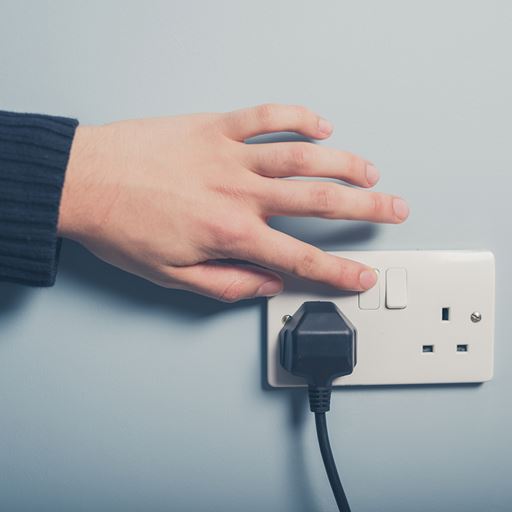Some appliances, such as televisions or wifi routers are called energy vampires because they consume energy even when they are not in use.
Researchers have found that giving personalised feedback on their energy vampires, how much they were costing them and how much they could save was not enough to persuade them to switch off at the mains.
It is estimated energy vampires account for around 10% of an average bill.
The findings mean energy firms and environmental groups, who currently target their energy-saving messages around promises of saving money, will need to find new ways of persuading people to reduce their energy consumption for the benefit of the environment.
Most people have little knowledge about how much energy they use or how much it is costing them, but the rollout of smart meters presents new opportunities for providing them with information to help them use less.
Previous research has looked at whether giving feedback can lead to a reduction in energy use, but there has been no consensus on which type of feedback is most effective.
In this latest study published in PLOS ONE, Dr Kathryn Buchanan and Professor Riccardo Russo, from the Department of Psychology, tested different feedback options, from providing people with generalised information about what the average household could save, through detailed personalised breakdowns of the costs associated with individual appliances in their own homes.
They tested whether people responded better if they were told they were wasting money, rather than saving it and if combining feedback with practical advice on what people could do to cut costs made any difference.
Finally they tested whether guilt-tripping people by telling them they were using more energy than average, or that everyone has a shared responsibility for reducing energy use, had any effect.
Dr Buchanan, said: “In a YouGov survey energy bills emerged as a number one concern for UK citizens, over and above other household bills, including petrol, food and mortgage costs.
“You would therefore assume that if they were given an option to save money on their energy bills, they would jump at the chance.
“But surprisingly we found that although giving feedback to residents increased their knowledge about their energy consumption, it didn’t persuade them to change their habits to reduce their bills.”

.jpg?mh=500&mw=500&hash=6568B6C9CCF5290A596BEF6678B6AD0E)




